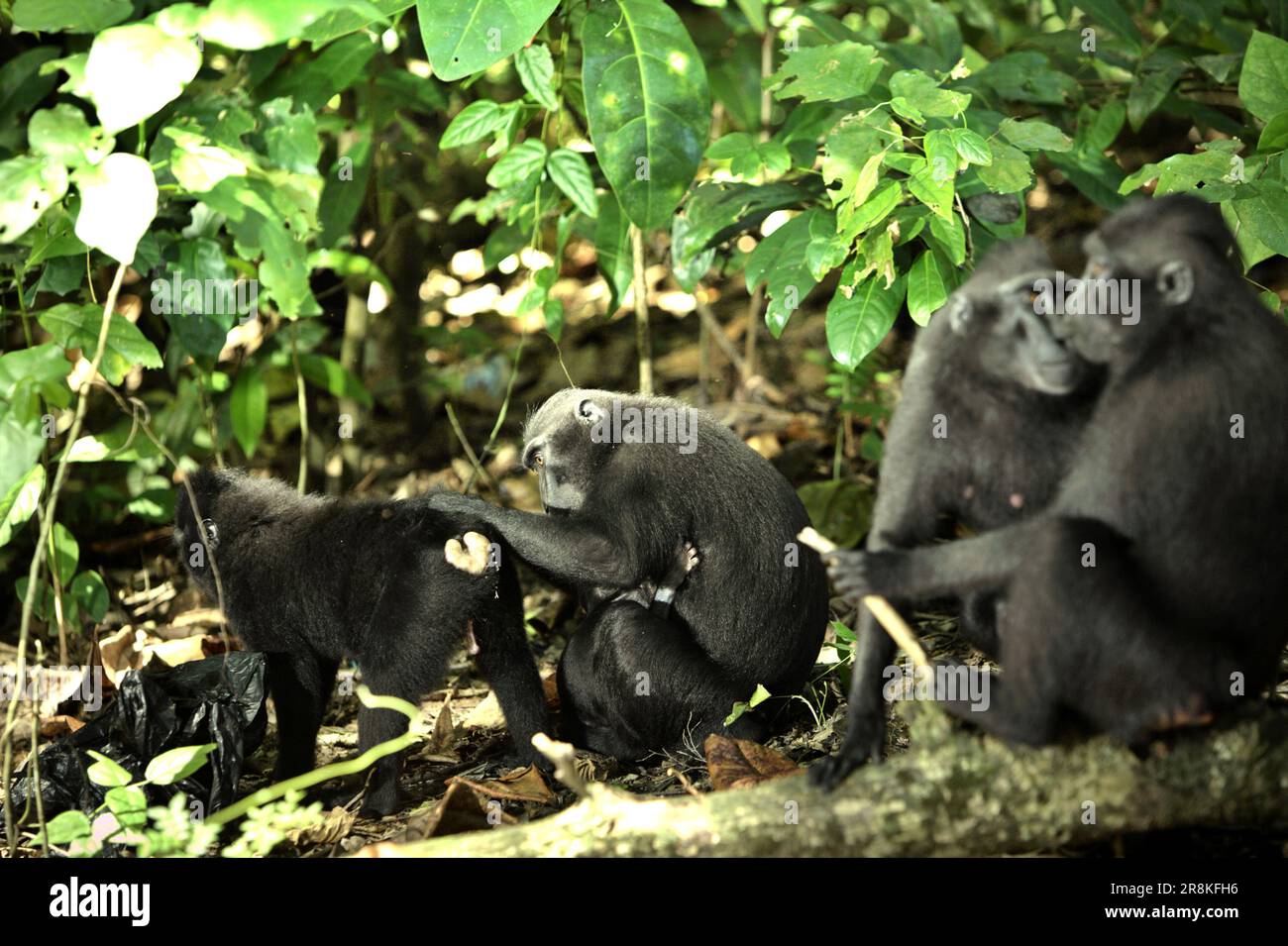Sulawesi black-crested macaques (Macaca nigra) are having social activities in Tangkoko Nature Reserve, North Sulawesi, Indonesia. Climate change may reduce the habitat suitability of primate species, that could force them to move out of safe habitats and face more potential conflicts with human, scientists say.

Image details
Contributor:
Pacific Imagica / Alamy Stock PhotoImage ID:
2R8KFH6File size:
60.5 MB (2.4 MB Compressed download)Releases:
Model - no | Property - noDo I need a release?Dimensions:
5634 x 3752 px | 47.7 x 31.8 cm | 18.8 x 12.5 inches | 300dpiDate taken:
18 January 2012Location:
Tangkoko Nature Reserve, North Sulawesi, IndonesiaMore information:
This image could have imperfections as it’s either historical or reportage.
Apart from deforestation and poaching; climate change is driving more extinction risk on this endemic, critically endangered species. Higher temperature, unusual and extreme climate conditions, for example, will affect the availability of their food supply. "A key threat is the potential shift in suitable habitat ranges, " according to a 2021 scientific assessment focusing on climate risk published by The World Bank Group and Asian Development Bank. "In island environments, where many species have limited mobility and land area can be very limited, there can be an amplified extinction risk as species become trapped, " the report said._A team of scientists led by Miriam Plaza Pinto (Departamento de Ecologia, Centro de Biociências, Universidade Federal do Rio Grande do Norte, Natal), in their January 2023 paper published on Nature, have also mentioned that climate change can cause species geographic distribution shifs. "Some species are expected to face the displacement of climatic suitability beyond their current geographic range. In addition, their habitat suitability and geographic distribution may reduce. In some cases, the suitability change may complement the current suitability, increasing in geographic distributions, " they wrote.